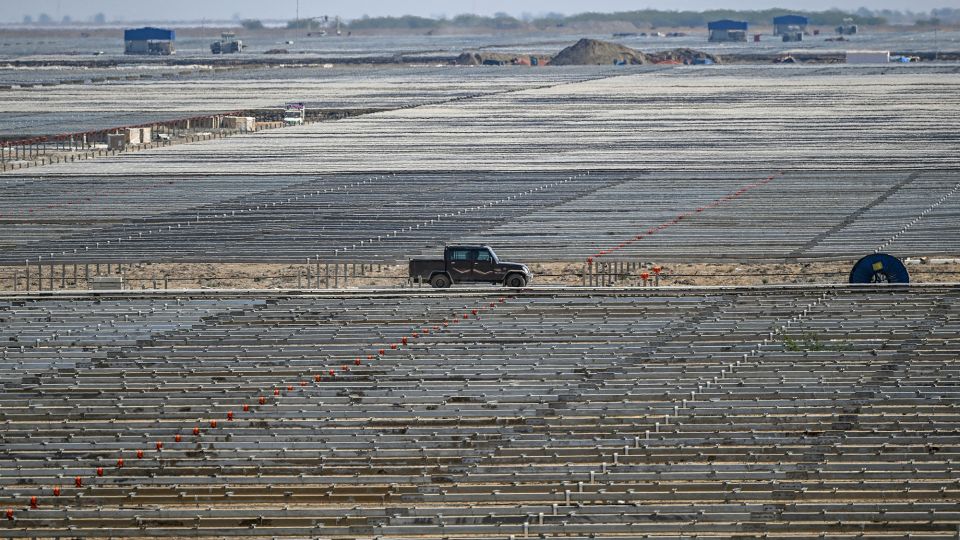Adani Green Energy Limited (AGEL), a clean energy unit of the Adani Group in India, is constructing the Khavda Renewable Energy Park, which will be the world’s largest renewable park upon completion. Costing about $20 billion, the park is located in Gujarat and will generate enough clean electricity to power 16 million Indian homes. This project is crucial for India’s efforts to reduce pollution, meet climate goals, and address the country’s growing energy needs, as coal currently accounts for 70% of the electricity generated in the nation.
Despite facing challenges earlier in the year, including accusations of fraud by an American short-seller that caused a significant stock market decline, the Adani Group is investing billions in the clean energy sector. With plans to invest $100 billion in energy transition over the next decade, 70% of the investments are earmarked for clean energy projects. India has set ambitious climate goals, with Prime Minister Narendra Modi aiming for renewable sources to fulfill 50% of the country’s energy requirements by the end of the decade and achieve net zero emissions by 2070.
India faces a significant increase in energy demand in the coming years, driven by factors like rising incomes, urbanization, and climate change. As the world’s third-largest energy-consuming country, India has seen a doubling in energy demand since 2000, with a large portion still being met by coal, oil, and solid biomass. The Adani Group’s renewable energy projects, including the Khavda park in Gujarat, play a crucial role in meeting India’s energy transition targets and ensuring a sustainable future for the nation.
While the Adani Group’s pivot towards clean energy is commendable, climate experts criticize the conglomerate for continuing to invest heavily in fossil fuels. The group operates coal mines in India and the controversial Carmichael Coal Mine in Australia, drawing criticism from environmental activists who see these investments as detrimental to the planet. Despite these concerns, Adani emphasizes the need to provide energy access to millions of people in India, including those transitioning into middle and upper-income brackets, who require access to basic energy needs.
With the expected rise in urban population, construction, and electricity demand in India, transitioning to renewable energy sources is essential to avoid catastrophic consequences for climate change efforts. India cannot rely solely on fossil fuels to meet its growing energy needs without exacerbating the climate crisis. While balancing the need for energy access with sustainable practices remains a challenge, the Adani Group asserts that India is actively investing in renewables and recognizes the importance of transitioning towards a cleaner energy future.
As India strives to balance economic growth with environmental sustainability, the Adani Group’s renewable energy projects, such as the Khavda Renewable Energy Park, play a crucial role in India’s energy transition. The nation’s ambitious climate goals and commitments to increasing renewable energy capacity underscore the importance of renewable energy investments in addressing the country’s energy needs, reducing pollution, and meeting climate targets. Despite criticisms, the Adani Group’s contributions to India’s clean energy sector are instrumental in advancing the nation’s green energy goals and shaping a more sustainable future for India and the planet.


